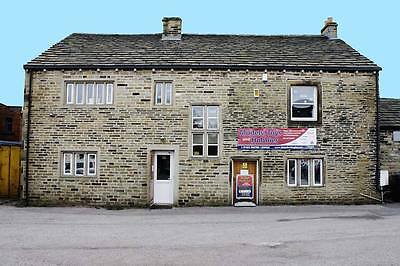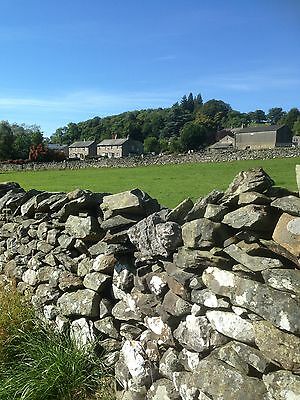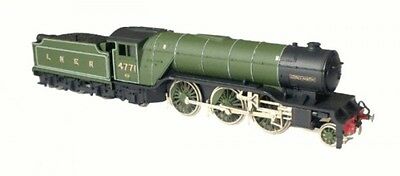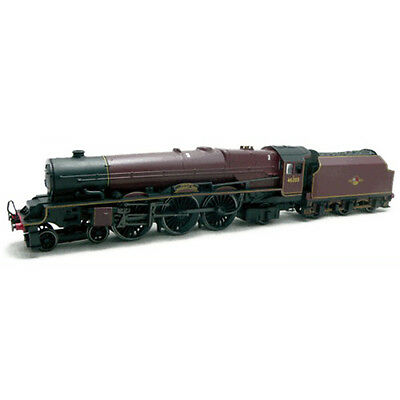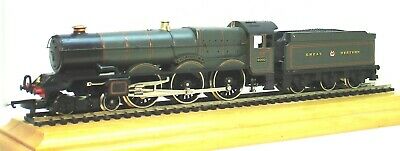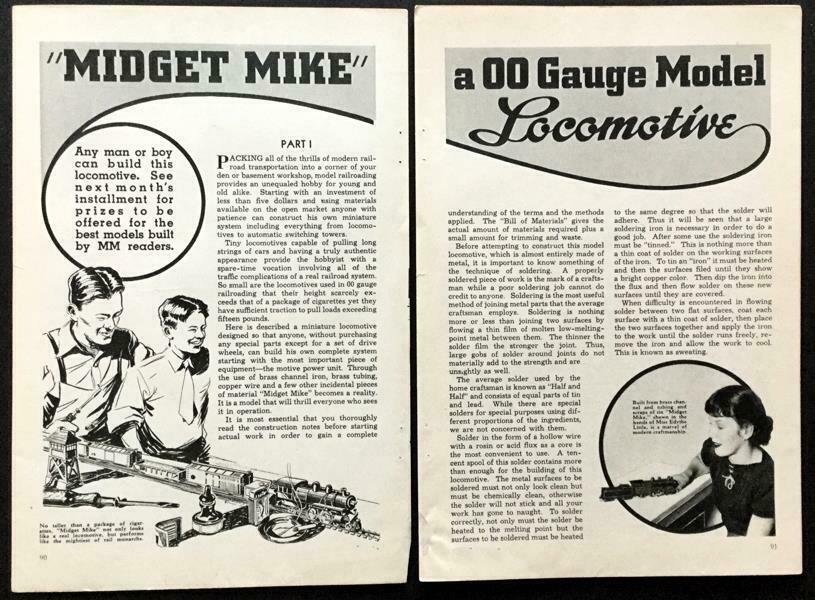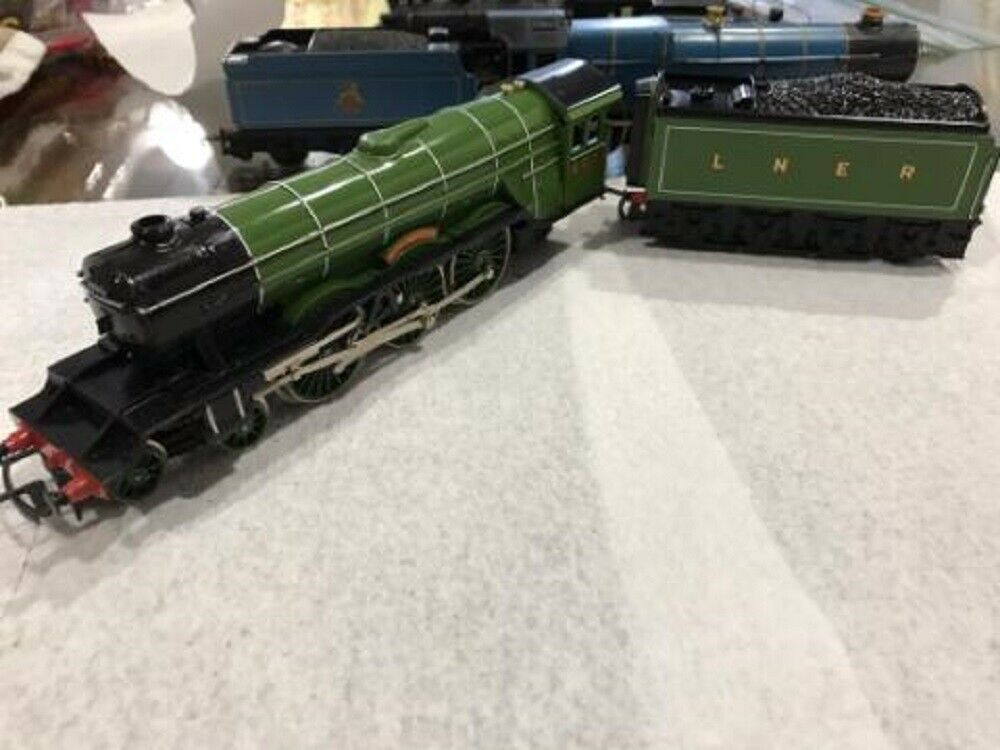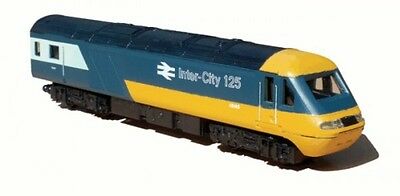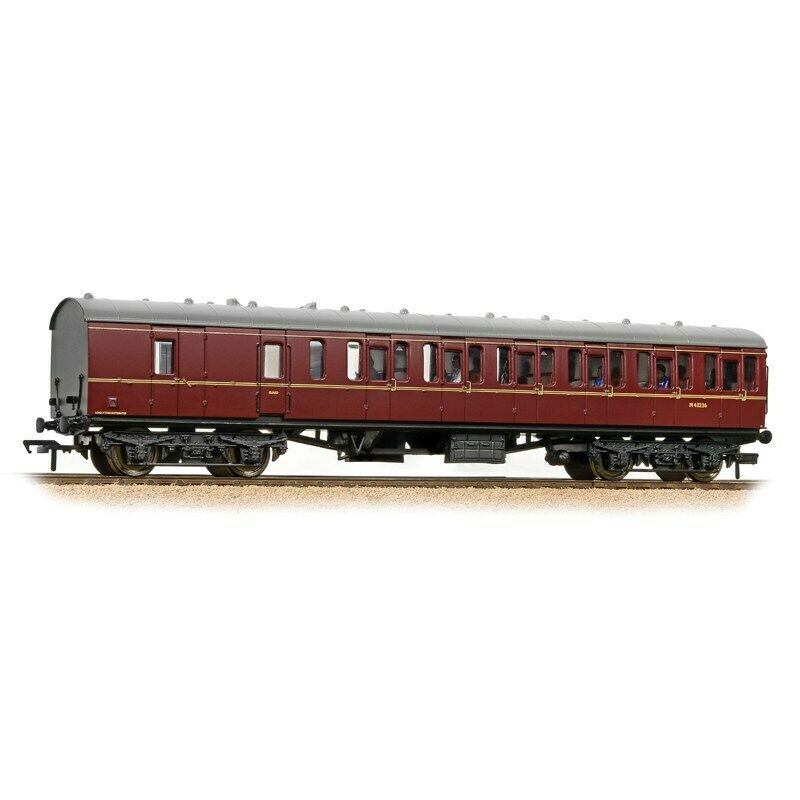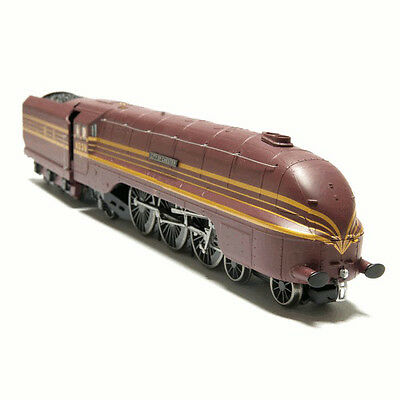-40%
Bachmann 31-210K - DCC Club Edition - BR Patriot 45506 'The Royal Pioneer Corps'
$ 109.91
- Description
- Size Guide
Description
MenuHome
About Us
Returns
Contact Us
View Feedback
Add to Favourites
Bachmann 31-210K - 21 PIN DCC CHIP FITTED - Club Edition - BR Patriot 45506 'The Royal Pioneer Corps'
Main Description
BACHMANN 31-210K - 4-6-0 PATRIOT CLASS LOCOMOTIVE - 45506 'THE ROYAL PIONEER CORPS' -
EARLY 'BRITISH RAILWAYS' LINED BLACK LIVERY
CLUB LIMITED EDITION
21 PIN DCC CHIP FITTED
The popular Bachmann Branchline OO scale Patriot Class 4-6-0 locomotive is now available as No. 45506 ‘The Royal Pioneer Corps’ in BR lined black livery with full BRITISH RAILWAYS branding on the tender.
Built in 1932 at the Crewe Works of the London, Midland & Scottish Railway it originally carried No. 5974 and was technically a rebuilt Claughton Class locomotive, although only the first two locomotives utilised the frames and wheels from the earlier London & North Western locomotives. It was renumbered in 1934 as No. 5506. These were the last locomotives to be built during Sir Henry Fowler’s tenure as Chief Mechanical Engineer of the LMS, although only the first two had been completed by the time of his retirement. A total of 52 locomotives were built between 1930 and 1934.
Originally allocated to Crewe, No. 45506 had spells at Bushbury, Willesden, Carlisle Upperby and Crewe North before being withdrawn from Bristol Barrow Road on 17th March 1962. It was cut up at Crewe Works having run over 1.3 million miles in traffic.
The locomotive was named on Wednesday 15th September 1948 – during a ceremony held at London Euston station – by Field-Marshal Montgomery (by then Viscount Montgomery of Alamein) who commanded the Allied ground forces during Operation Overlord (better known as the D-Day landings in June 1944 during World War II). Dignitaries from both British Railways and the Royal Pioneer Corps attended a luncheon held at Euston Station Hotel, before proceeding to Platforms 6 & 7 where the naming ceremony took place. At the time No. 45506 was allocated to Carlisle Upperby depot.
The Royal Pioneer Corps had contacted the newly formed London Midland Region of British Railways asking if it were possible for one of their Locomotives to be named to commemorate the work of the Corps. The Locomotive was one of several members of the class to be named after regiments of the British Army and men who served with distinction in the Great War and it carried plaques with the Crest of 'The Royal Pioneer Corps' – presented by the Royal Pioneer Corps Association.
Following withdrawal, the name ‘The Royal Pioneer Corps’ was applied to Class 45 No. D54, the class which replaced many of the Patriot locomotive on the Midland Mainline routes working in and out of London St. Pancras.
made with love by
jarilo
design
jarilo
design
BACHMANN 31-210K - 4-6-0 PATRIOT CLASS LOCOMOTIVE - 45506 'THE ROYAL PIONEER CORPS' - EARLY 'BRITISH RAILWAYS' LINED BLACK LIVERYCLUB LIMITED EDITION 21 PIN DCC CHIP FITTED The popular Bachmann Branchline OO scale Patriot Class 4-6-0 locomotive is now available as No. 45506 ‘The Royal Pioneer Corps’ in BR lined black livery with full BRITISH RAILWAYS branding on the tender.Built in 1932 at the Crewe Works of the London, Midland & Scottish Railway it originally carried No. 5974 and was technically a rebuilt Claughton Class locomotive, although only the first two locomotives utilised the frames and wheels from the earlier London & North Western locomotives. It was renumbered in 1934 as No. 5506. These were the last locomotives to be built during Sir Henry Fowler’s tenure as Chief Mechanical


